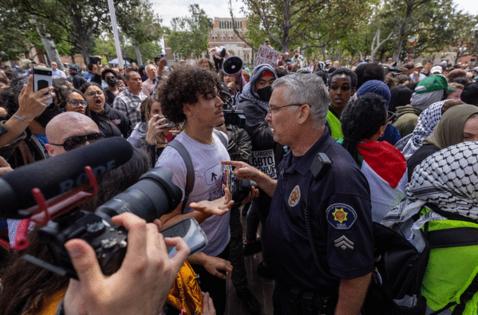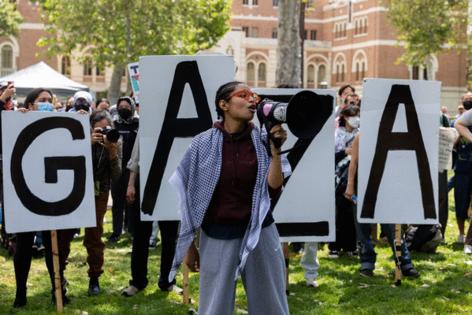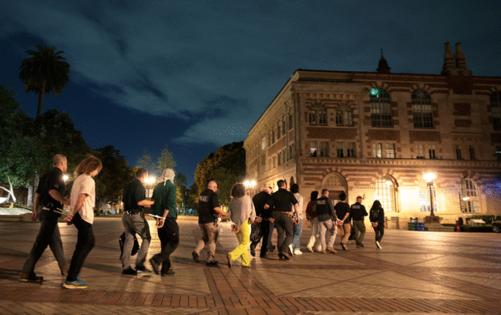12 days that rocked USC: How a derailed commencement brought 'total disaster'
Published in News & Features
LOS ANGELES — The crowning of Asna Tabassum as USC valedictorian was supposed to be a time of pride for a university that has tried to shed its old image as a playground for the privileged by bolstering academics and diversity.
In selecting Tabassum from close to 100 applicants with near-perfect GPAs and impressive extracurriculars, USC put the spotlight on a hijab-wearing Muslim daughter of Indian immigrants for its highest undergraduate honor.
A biomedical engineering major with a passion for social justice who minored in “resistance to genocide,” she was just the kind of student USC has aimed to attract and has celebrated in ads for the university, where the annual tab for those without scholarships or financial aid this fall will eclipse $95,000.
Instead, the decision by President Carol Folt to rescind Tabassum’s graduation speaking slot after undisclosed threats has catapulted USC into almost two weeks of protest and controversy. The campus gates are closed to the public, police have made 93 arrests, many classes were moved online, and the marquee 65,000-attendee “main stage” commencement ceremony has been called off.
Even at a time when swelling demonstrations have engulfed campuses across the nation, USC stands out. No other university has pulled its main commencement, and few have seen as many arrests as quickly as USC.
“It’s a complete disaster,” said Viet Thanh Nguyen, a bestselling novelist and university professor of English, American studies and ethnicity and comparative literature who has taught at USC for 27 years. “In every option, our administration has chosen the worst option. Every step along the way, our administration has been absent.”
Gabriel Kahn, a USC journalism professor, had a similar view.
“What I have wanted to see from the beginning of this is for the university to exhibit some leadership and convene an uncomfortable conversation where differing points of view confront one another in the spirit of dialogue and learning,” he said. “Instead, we’ve seen an effort to flee from anything remotely controversial, which I think is intellectual cowardice.”
On Friday, Folt — who until then had not commented publicly on the recent events — released a letter to students, faculty and staff, saying that “the past few weeks have been incredibly difficult for all of us” and that “the current pressures and polarization have taken a toll in ways that break my heart.” Folt called on the USC community to “share points of view, listen, search for common ground — and find ways to support each other.”
In an email, Lauren Bartlett, associate vice president for strategic and crisis communications, declined a Times request to interview Folt. The USC board chair, Suzanne Nora Johnson, also declined an interview request. Tabassum, who previously spoke to The Times, did not reply to a subsequent interview request.
...continued
©2024 Los Angeles Times. Visit at latimes.com. Distributed by Tribune Content Agency, LLC.














Comments